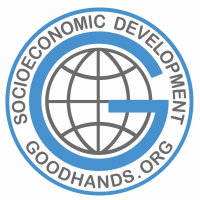Career Planning and Development: Building a Roadmap to Success
Career Planning and Development: Building a Roadmap to Success
A well-thought-out career plan is the foundation of professional success. This section provides practical strategies, tools, and resources to help you identify your career goals, evaluate opportunities, and build a clear path toward achieving them. Whether you’re entering the workforce, transitioning careers, or aiming for growth in your current role, our guides offer actionable steps to empower your journey.
Topic 1.2: Building a Personalized Career Plan
A career plan helps you map out the steps needed to achieve your professional aspirations.
- Action plans list key milestones, required skills, and timelines for each objective.
- Identifying skill gaps helps you assess where additional training or experience is needed.
- Leveraging resources such as career guides and mentorship programs supports professional development.
- Staying flexible ensures you can adapt your plan as opportunities or challenges arise.
- Reviewing progress regularly helps you adjust your plan to stay on track.
Explore More: Visit the Mentor Guide
https://www.goodhands.org/en/career/1/2
Mentoring Information
1. Defining Key Milestones
- Break down long-term goals into achievable short-term milestones.
- Use SMART (Specific, Measurable, Achievable, Relevant, Time-bound) criteria to ensure clarity.
2. Identifying and Addressing Skill Gaps
- Evaluate your current skills against job requirements for your target role.
- Explore free or affordable online courses to bridge gaps (e.g., Coursera, Khan Academy).
- Seek out hands-on learning opportunities like internships or volunteer projects.
3. Leveraging Resources for Professional Development
- Research local career fairs, workshops, and networking events to broaden connections.
- Find mentors in your field who can offer guidance and insights into industry expectations.
- Utilize career assessment tools to refine focus and discover potential career paths.
4. Building Flexibility into Your Plan
- Be prepared to revise your objectives based on market trends and personal growth.
- Stay updated on industry developments to identify emerging opportunities.
- Embrace setbacks as opportunities to learn and recalibrate your approach.
5. Monitoring and Adjusting Progress
- Set regular check-ins (monthly or quarterly) to assess your progress.
- Use tracking tools like career journals or apps to document achievements and challenges.
- Celebrate small wins to stay motivated and committed to your career plan.
By following these tailored strategies, you can create a dynamic and adaptable career plan that evolves with your aspirations and circumstances.

